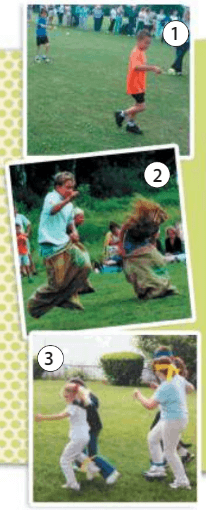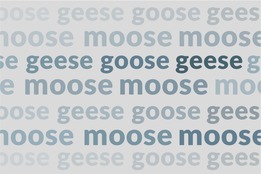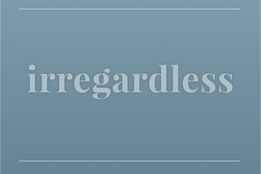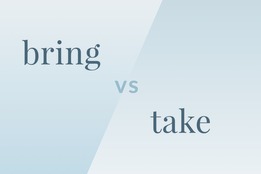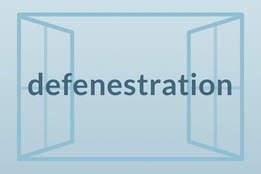Activity
Let’s face it, studying vocabulary is not something most children are exactly thrilled to do. Make it fun with this competitive family game! Pick a word of the day and see who can use it correctly the most times. This game will help your child learn new words by getting her to use them in real conversations. Increasing your child’s vocabulary is important for her grasp of the English language, and can also help her score higher on those tricky standardized tests.
What You Need:
- 20 index cards
- Black marker
- Pencil
- Ruler
- Bag or box
- Poster board
- Invisible tape
- Dictionary
What You Do:
- Prepare for the game: With the black marker, write a different vocabulary word on each index card and then put them all into a box or bag. For pointers on what words to use, you may want to look over your child’s homework or check with a teacher to see which vocabulary words your child needs to learn.
- At the top of the poster board, have your child write a title, such as «Word of the Day,» in big block letters. Leave some space underneath for the rest of the project.
- Use the pencil to trace an index card 5 times on the poster board, arranging the 5 rectangles like 5 dots on a domino. Leave some room around each rectangle so you have space to write the days of the week, and be sure to leave several inches at the bottom of the poster where you will write the names of each family member.
- Above each rectangle, have your child write the days of the week in order. Monday should be the top-left rectangle, Wednesday should be the one in the center, and Friday should be on the bottom-right.
- Underneath that, use the ruler to divide the remaining space into four equal quadrants. Invite your child to write each family member’s name in the upper-left corner of each quadrant and be sure she leaves enough space for tally marks to keep score. (Note: for families with more than 4 members, have one or both parents sit out so the kids can compete against each other.)
- How to play: At breakfast each day, have your child draw a word from the bag and read it out loud. If anyone can define the word, encourage them to explain it to the rest of the family. If not, look it up in the dictionary and then give examples of the ways you could use the word in a conversation.
- Give your child a piece of Scotch removable tape and then have her paste it under the correct day of the week.
- The object of the game is to see which family member can use the word the most times correctly in conversation. Have each person keep track of how many times they use it in that day. Maybe add to the challenge by seeing who can come up with the most creative or silly way to use the word in a sentence!
- At dinner time, each family member will share how many times they use the word during the day and for each time someone used it, have your child put a tally mark next to their name. Share stories with each other about how you used the word, and with whom.
- For the rest of the week, your child will draw a new card every morning and tape it to the poster, and every evening your child will tally up each family member’s score.
- On the weekend, the goal is to use as many of the 5 words that were used during the week in conversation. But if you’d rather take a break on the weekend, that’s fine too, just skip to the next step.
- On Sunday, help your child add up all the points that each family member received over the week. Whoever has the most points gets the title «Word of the Day Champion!» Reward the vocabulary whiz by letting her choose what’s for dinner that night or what movie the family will watch. Another idea: make a silly «crown» out of an old hat or construction paper that the Word of the Day champion can wear the rest of the week. This activity is a great way to increase your child’s vocabulary and get the whole family involved, but don’t expect to do it every week—you’ll run out of words!
Read and match the words in bold to the pictures.
In the USA, children love running in races. On Sports Day children take part in lots of fun races.
The sack race is very popular – the runners get into a sack to run the race. It’s great fun! There’s also the ball and spoon race – the winner is the first one to finish with the ball still on the spoon!
Another favourite is the three−legged race. In this race, two people tie a leg together to run. It’s not as easy as it looks!
reshalka.com
Английский язык 3 класс (часть 2) Spotlight Английский в фокусе Быкова. Module 7. Spotlight on the USA. Номер №1
Решение
Перевод задания
Прочтите слова, выделенные жирным шрифтом, и сопоставьте их с картинками.
В США дети любят участвовать в гонках. В День спорта дети принимают участие в веселых забегах.
Очень популярен бег в мешках − бегуны натягивают мешки, чтобы пробежать забег. Это очень весело! Есть также гонка с мячом и ложкой: победитель – тот, кто первым финиширует с мячом на ложке!
Еще одна любимая – это гонка на трех ногах. В этом забеге два человека связывают ногу вместе, чтобы бежать. Это не так просто, как кажется!
ОТВЕТ
1) ball and spoon race
2) sack race
3) three−legged race
Перевод ответа
1) гонка с мячом и ложкой
2) гонка в мешках
3) трехногая гонка
Ask the Editors
-
Weird PluralsOne goose, two geese. One moose, two… moose. Wh…
-
IrregardlessIt is in fact a real word (but that doesn’t mean …
-
Bring vs. TakeBoth words imply motion, but the difference may b…
-
DefenestrationThe fascinating story behind many people’s favori…
Word Games
-
Farm Idioms QuizIf you’ve got a pig in a poke — what exactly is a…
Take the quiz
-
Name That Hat!Time to put on your thinking cap.
Take the quiz
-
Name That ThingYou know what it looks like… but what is it cal…
Take the quiz
-
Spelling Bee QuizCan you outdo past winners of the National Spelli…
Take the quiz
In partnership with Save the Children, the dictionary is raising awareness on an important issue.
Dictionary.com partnered with Save the Children to raise awareness of kids living in conflict zones.
Credit: save the children
Words are powerful beyond measure, but they hold different meanings for each person.
With that truth in mind, Save the Children — an international organization(Opens in a new tab) that fights for children’s rights – enlisted the help of Dictionary.com(Opens in a new tab) to show how definitions can vary under different circumstances.
On Thursday, Dictionary.com chose «SOS,» a noun defined as(Opens in a new tab) “any call for help,” as its Word of the Day to raise awareness of the 357 million children currently living in conflict zones around the world.
In a new report(Opens in a new tab) titled The War on Children, Save the Children found that one in six kids around the world live within 30 miles of a conflict zone. The 15% of children in the world affected by war — in places like Syria, Afghanistan, and Somalia — encounter dangerous challenges that have a major impact on their housing situations, family members, education, and leisure activities.

Credit: save the children
To powerfully illustrate the harrowing reality these kids face Save the Children had Dictionary.com define four core words in a child’s life: family, home, playground, and school. The organization then replaced the official definitions with personal ones from children who live in war zones, creating the striking images below.
Family: «Just me and my auntie, until we find my mother and brother again.»

Credit: save the children
Home: «The tent where I live and feel scared all the time.»

Credit: save the children
Playground: «A place where we used to play, but can’t play anymore because of the bullets and bombs.»

Credit: save the children
School: «A bombed-out place where I used to learn with my friends.»

Credit: save the children
Save the Children hopes that redefining these words will open people’s eyes to the serious situation happening across the globe and inspire them to take action(Opens in a new tab) to protect the children caught in the midst.
To learn about additional research performed by Save the Children and the Peace Research Institute Oslo(Opens in a new tab), along with individual experiences from children living in war-torn areas of the world, check out the full report(Opens in a new tab).
Nicole is a Senior Editor at Mashable. She primarily covers entertainment and digital culture trends, and in her free time she can be found watching TV, sending voice notes, or going viral on Twitter for admiring knitwear. You can follow her on Twitter @nicolemichele5(Opens in a new tab).
By signing up to the Mashable newsletter you agree to receive electronic communications
from Mashable that may sometimes include advertisements or sponsored content.
Тренировка произношения
Нажмите на микрофон и произнесите текст. Нажмите стоп.
У вас отличное произношение 😎
У вас хорошее произношение, но стоит еще потренироваться 👍
Попробуйте еще раз 🙁
Микрофон заблокирован
Инструкция по включению микрофона:
Google Chrome
Opera
После включения микрофона, перезагрузите страницу.
Ваш браузер не поддерживает запись с микрофона.
Мы рекомендуем Google Chrome для компьютеров и Safari для ios.
Прослушать себя
Зарегистрируйтесь, чтобы сохранять свои произношения
Закрыть


